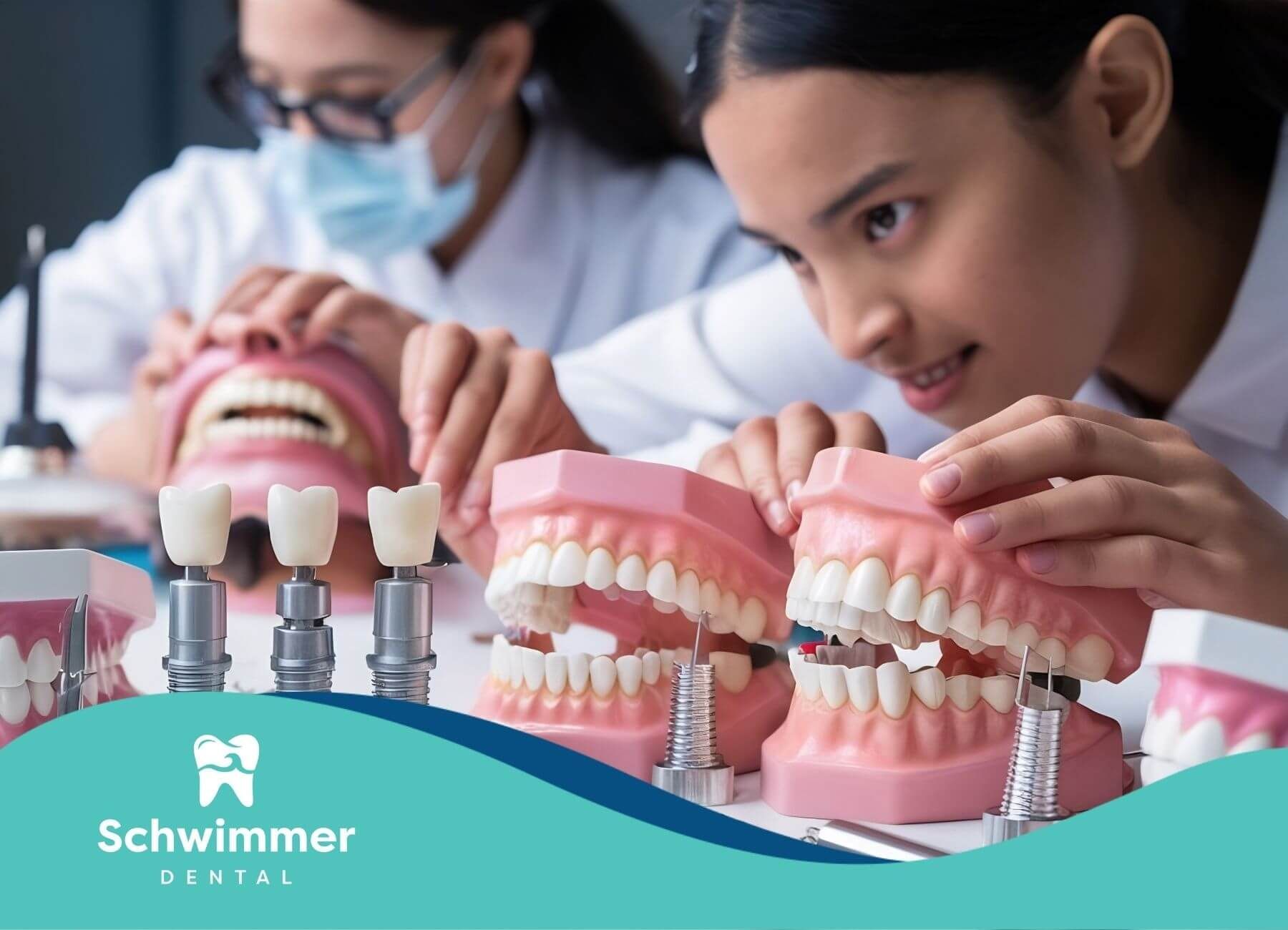Infant Bruxism: Understanding Teeth Grinding in Babies
As parents, we do everything we can to ensure our infants are happy and healthy. However, some health concerns, like infant bruxism (teeth grinding), may leave us puzzled and worried. While it may seem alarming at first, bruxism is a common behavior among young children and babies. Understanding what causes it, its potential effects on your infant’s oral health, and how to manage it can ease your concerns.
This article provides an in-depth look at infant bruxism, including causes, symptoms, and available treatment options. Whether your baby is grinding their teeth while they sleep or during the day, you'll find helpful information to guide you through this phase.
What is Infant Bruxism?
Bruxism is the involuntary grinding or clenching of teeth. It’s most commonly associated with sleep, but in infants, it can also occur while they are awake. Teeth grinding in babies is quite common and usually harmless. In fact, many infants go through a phase of bruxism as part of their development.
While bruxism can be concerning for parents, especially when it sounds like loud grinding or clenching, it is typically a temporary condition that resolves itself as your baby grows. However, if it persists, it could lead to dental issues that require attention.
Causes of Infant Bruxism
1. Teething
The most common cause of bruxism in infants is teething. As new teeth emerge, babies may experience discomfort and pain. Grinding or clenching their teeth is a way they might try to soothe the discomfort in their gums. This behavior usually peaks during the eruption of the first set of baby teeth and tends to subside once the teething phase is over.
2. Jaw Development
Infants’ jaws are constantly developing as their baby teeth emerge. The grinding may occur as their jaw muscles adjust and grow stronger, especially as the child learns how to move their jaw and mouth in different ways. It’s a natural part of their motor development.
3. Misalignment of Teeth
In some cases, babies may grind their teeth if they have any misalignment or malocclusion (incorrect positioning of their teeth). This may be caused by the way the teeth are growing or a slight misalignment of the upper and lower teeth.
4. Stress and Anxiety
While uncommon in very young infants, stress or anxiety can contribute to bruxism. Babies may experience stress due to changes in their routine, a change in environment, or if they are introduced to new experiences like daycare, moving, or separation anxiety.
5. Medical Conditions
Rarely, certain medical conditions like ear infections, sleep apnea, or even neurological conditions can cause bruxism. If you notice that your baby’s teeth grinding is accompanied by other signs of illness or distress, it’s important to consult a healthcare professional for further evaluation.
6. Family History
There may be a genetic component to bruxism. If other members of the family grind their teeth, it’s possible that the behavior may be inherited. Bruxism is more commonly observed in children whose parents or siblings have a history of the condition.
Symptoms of Infant Bruxism
While the main symptom of bruxism is teeth grinding, there are a few other signs that parents can watch for:
1. Grinding Sounds
The most obvious sign of bruxism is the distinctive sound of teeth grinding. It can be loud, and parents often hear it at night while their infant is sleeping. You might also hear a clenching noise as the child tightens their jaw.
2. Worn or Damaged Teeth
In cases where bruxism is severe and persistent, parents may notice that their baby’s teeth have become worn down or flattened. However, this is more likely to occur if the grinding continues for an extended period.
3. Soreness or Tenderness in the Jaw
Although it’s difficult for babies to communicate pain, you might notice that your infant seems uncomfortable or has difficulty moving their jaw. They may also display signs of irritability, especially upon waking up.
4. Difficulty Sleeping
Babies who grind their teeth may experience disturbed sleep patterns. The grinding may wake them up, leading to fragmented sleep and possible fussiness during the day.
5. Earache
Bruxism can sometimes lead to ear pain. If your baby seems to be tugging at their ears or showing signs of ear discomfort, it could be related to teeth grinding, especially if the grinding occurs during sleep.
Is Infant Bruxism Harmful?
In most cases, infant bruxism is harmless and temporary. The behavior often resolves on its own as the child grows and their teeth become properly aligned. However, if bruxism is severe or persists beyond the age of 6 or 7, it could cause damage to your child’s teeth, gums, or jaw. Early treatment can help prevent long-term oral health issues.
Potential risks of untreated bruxism include:
- Tooth wear and tear
- Increased risk of cavities due to worn enamel
- Gum irritation from grinding
- Jaw or facial muscle pain if grinding is persistent
- Misalignment of teeth and bite issues
If you notice any signs of tooth damage or jaw pain, it’s a good idea to consult with your pediatric dentist for further advice.
Treatment Options for Infant Bruxism
Most cases of bruxism resolve without treatment, but there are several strategies you can try to help your baby and ensure their oral health remains intact.
1. Teething Relief
If your baby is teething, offering soothing methods like teething rings, cold compresses, or chilled washcloths can help reduce the discomfort that might be causing the grinding.
You can also use pediatric teething gels or medications (as recommended by your pediatrician) to ease gum soreness.
2. Massage and Relaxation
Gently massaging your baby’s jaw or face may help relax the muscles. Keeping a calm and soothing bedtime routine may also reduce the chances of bruxism caused by stress or anxiety.
3. Ensure Proper Sleep Habits
Good sleep habits are essential. Make sure your baby has a comfortable sleep environment, and follow a consistent bedtime routine. Avoid overstimulation before bedtime and keep the sleep area quiet and calm to reduce any potential stress triggers.
4. Regular Dental Checkups
Regular visits to the dentist are essential for detecting early signs of bruxism and ensuring your child’s teeth are healthy. Your dentist may recommend treatments if the bruxism becomes problematic, such as a night guard if your baby is older or if the grinding persists.
5. Monitor and Address Any Medical Issues
If you suspect that your baby’s bruxism is related to medical conditions like sleep apnea or ear infections, seek advice from your healthcare provider for further evaluation.
When to Seek Professional Help
While infant bruxism is usually not a cause for concern, you should reach out to a pediatric dentist or your child’s healthcare provider if:
- The grinding continues past age 6 or 7
- You notice signs of tooth damage
- The grinding is accompanied by pain or discomfort
- Your baby is exhibiting signs of sleep problems or daytime fatigue
- You suspect a medical issue like an ear infection or sleep disorder
Your pediatric dentist can provide personalized guidance on how to handle bruxism and protect your baby’s dental health.
Conclusion
While it can be alarming to hear your infant grinding their teeth, infant bruxism is usually a temporary phase that resolves with time. By understanding the causes, symptoms, and treatment options, you can better manage this issue and ensure your baby’s oral health is protected.
If you have concerns about your baby’s teeth grinding or any other oral health matters, don’t hesitate to reach out to your pediatric dentist. They can provide the care and advice you need to keep your child’s smile healthy as they grow.
At Schwimmer Dental, we are dedicated to providing compassionate care for children and families. If you have questions about your child’s dental health, we’re here to help.
Frequently Asked Questions
Is teeth grinding in babies normal?
Yes, teeth grinding in babies is a common and typically harmless behavior, often associated with teething or jaw development.
Can bruxism cause long-term dental damage in infants?
While bruxism can cause temporary discomfort or mild tooth wear, it usually doesn’t result in long-term damage unless the grinding persists for an extended period.
How can I prevent my baby from grinding their teeth?
Providing teething relief, ensuring a calming bedtime routine, and addressing any medical concerns can help reduce the frequency of teeth grinding in babies.
Sources:
- https://www.nhs.uk/conditions/teeth-grinding/
- https://www.healthline.com/health/malocclusion-of-teeth
- https://pubmed.ncbi.nlm.nih.gov/24762185/
- https://medlineplus.gov/ency/article/001413.htm
- https://www.healthline.com/health/parenting/baby-teeth-grinding



